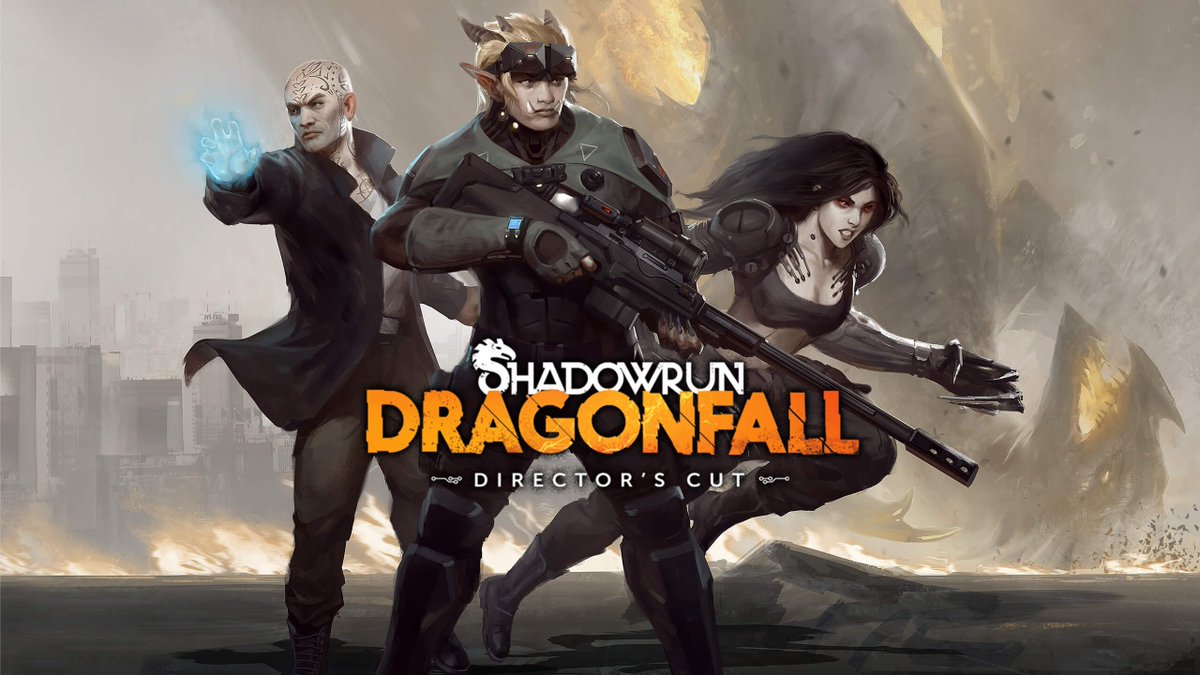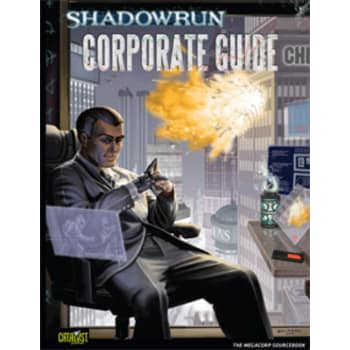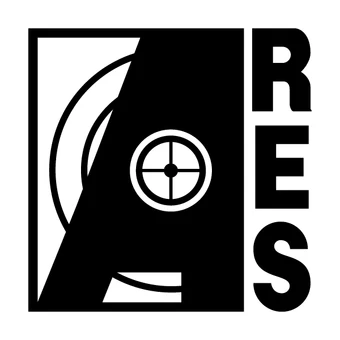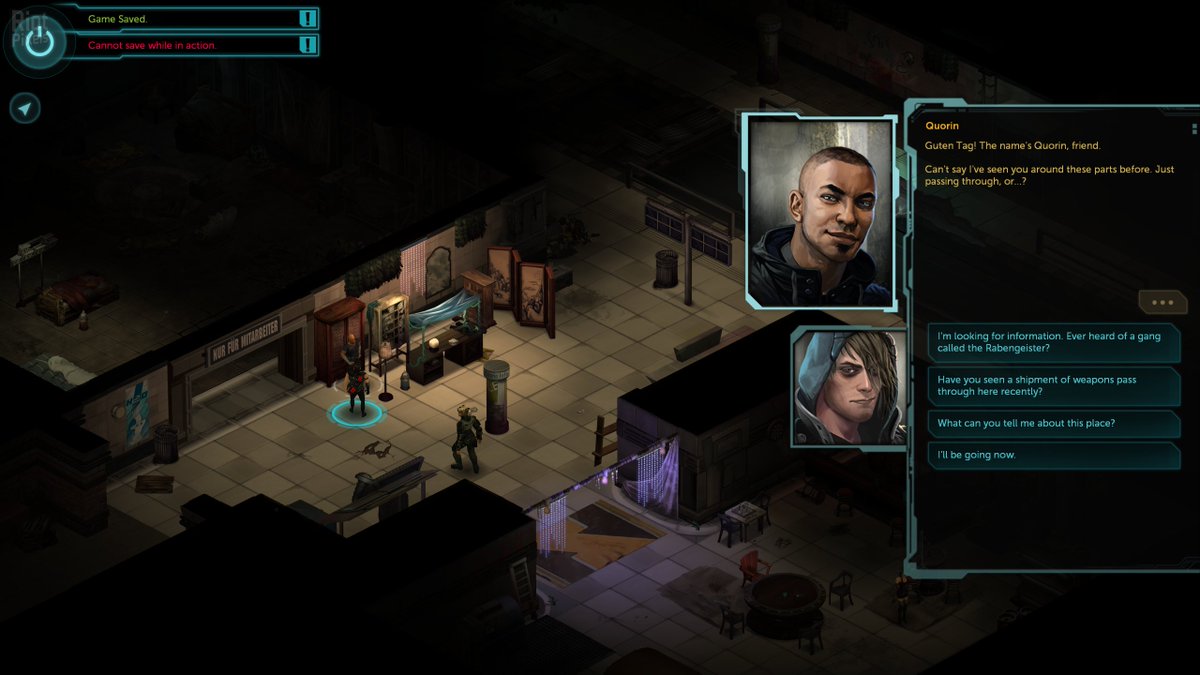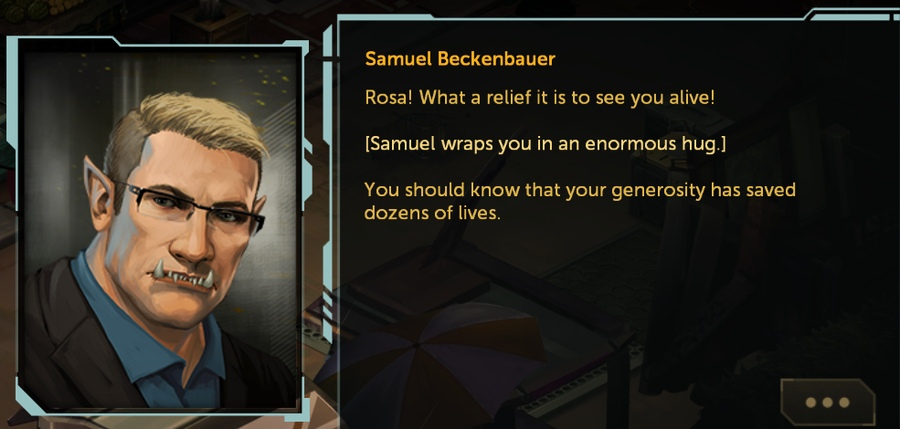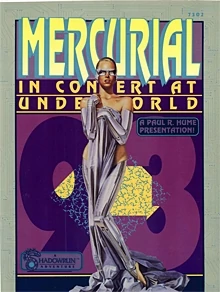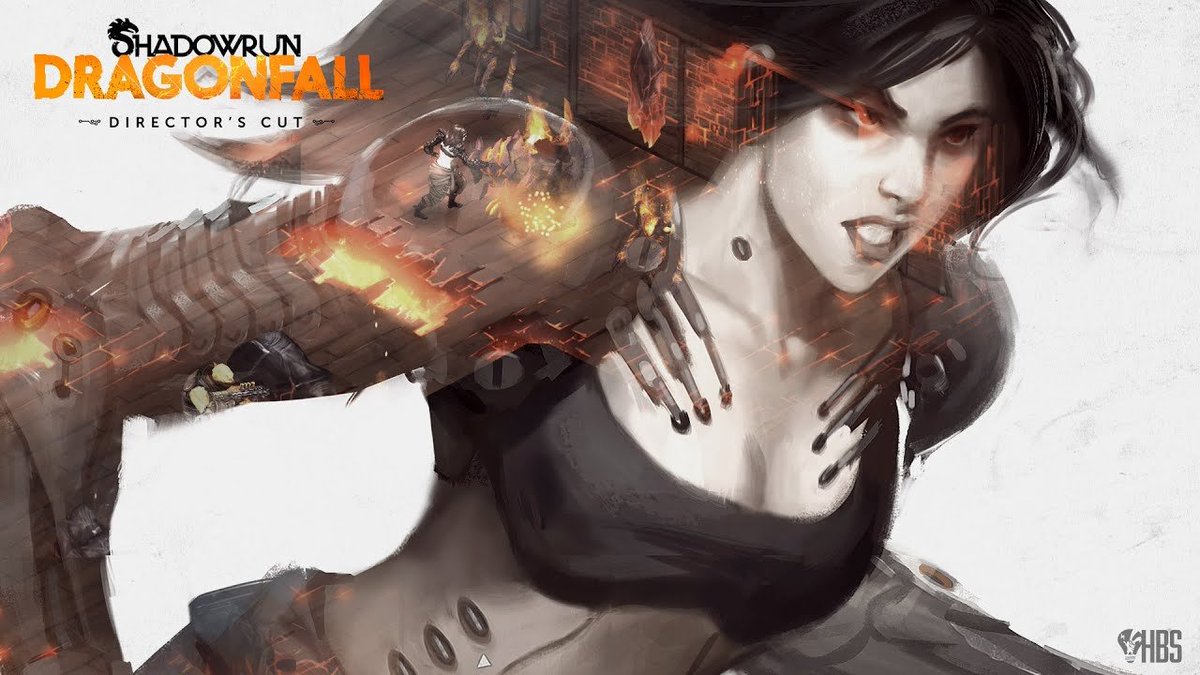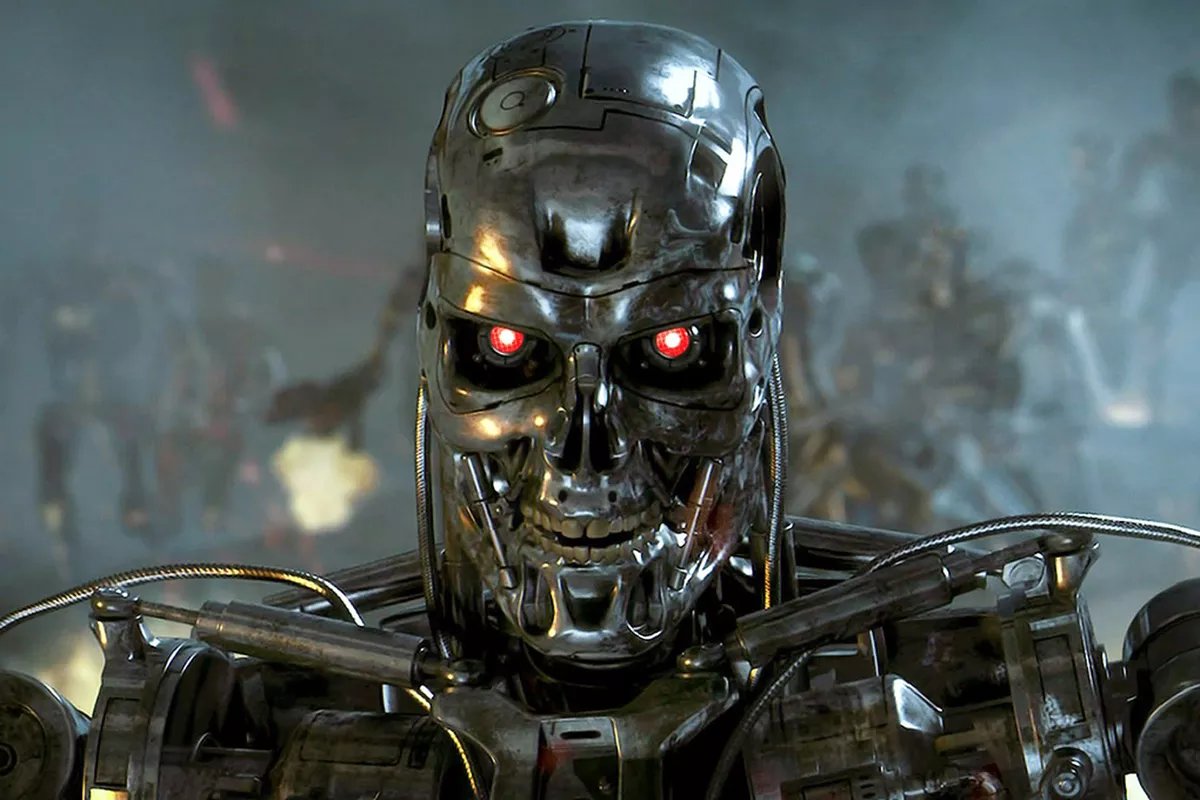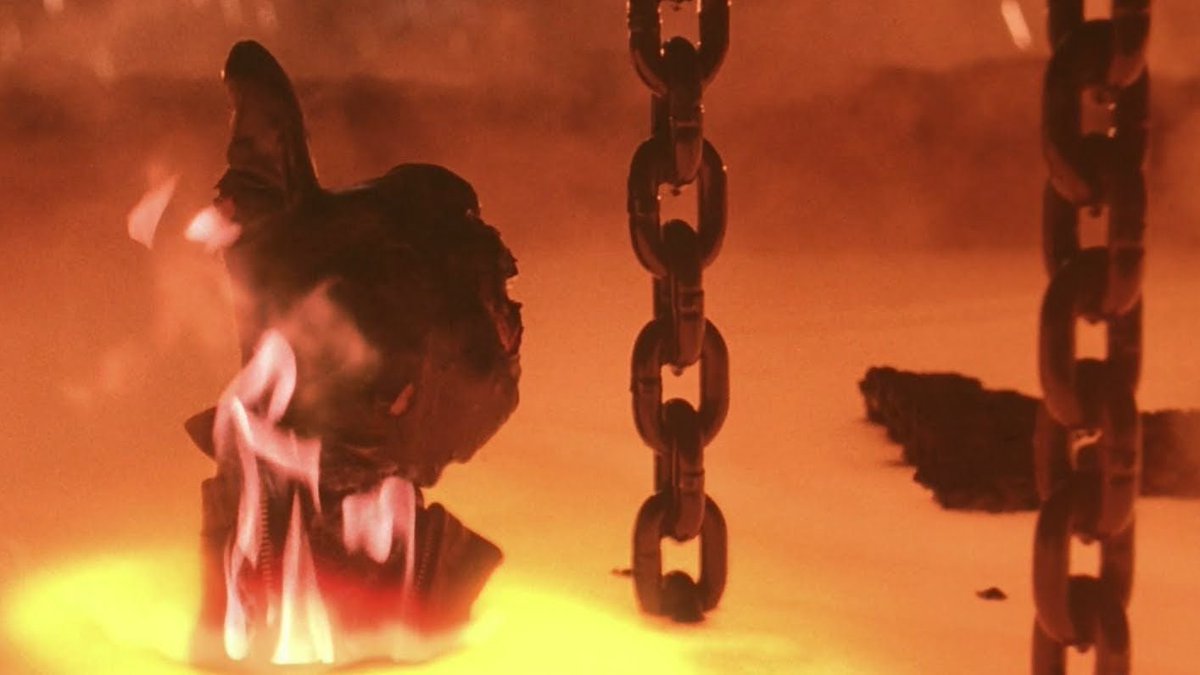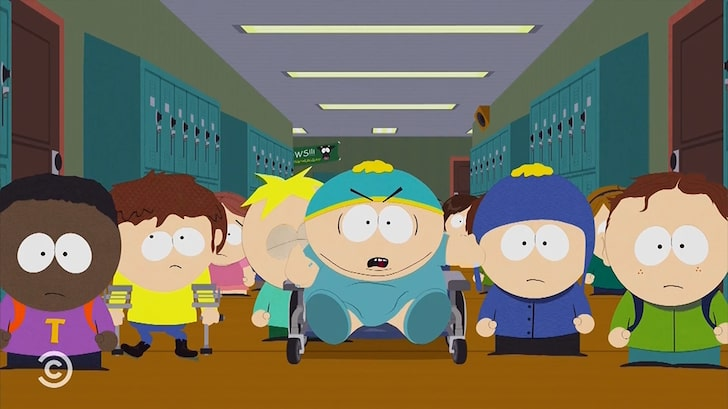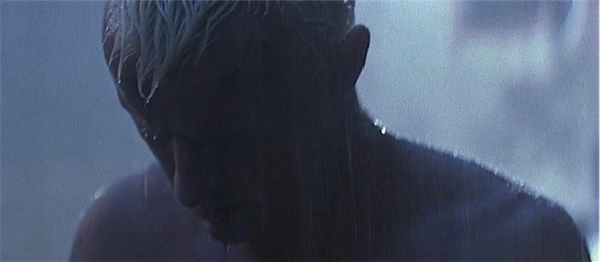Been playing a lot of cyberpunk recently—no, not that one, the #Shadowrun kind! (Specifically Dragonfall, which I tried to play back when it came out, but I kept dying in the tutorial.)
Shadowrun does some things really well that are good design ideas...
(A thread.)
1/
Shadowrun does some things really well that are good design ideas...
(A thread.)
1/
Like most cyberpunk genre media, in Shadowrun, megacorporations have global reach and influence. The game books include top-ten lists of the largest, wealthiest, most influential corporations, and ideas about what they do and what kinds of cutting-edge research they sponsor.
2/
2/
Shadowrun lays out the corporations for you, giving them names, chairpeople, and agendas. This makes it really easy for you, as a GM, to figure out missions that involve them. It also does worldbuilding for you: These organizations exist, they have logos and goals.
3/
3/
Often, Shadowrun corporations have names that, just like a character's, are signals to you about what they are like. Ares Macrotech, named for the god of war, a supplier of military hardware. Yamatetsu (loosely, "hell steel,") cutting-edge cybernetics research.
4/
4/
In Shadowrun, there's not really such a thing as a "good" corporation. Any sufficiently large organization driven by profit motive will engage in shady and unethical business. This means that while they are patrons to the characters in the game, hiring them for dirty work...
5/
5/
... they're also enemies; you can't trust them, and they use you because you are deniable, disposable, and cheap. A good heroic story often stands on the strength of its villain, and the megacorps of SR give you really solid, dangerous, nasty villains!
6/
6/
But if corporations aren't going to do any good, how do people get by? How do you just survive when the powers running the world are out only for themselves, and in many cases, actively malicious? Shadowrun tackles this too; it does so explicitly in Dragonfall:
7/
7/
People rely on each other. They rely on aid, they form their own networks, they find ways to help one another. Not for the profit motive, but because it's the humane thing to do.
In Dragonfall, you interact with communities, and those communities are just trying to survive.
8/
In Dragonfall, you interact with communities, and those communities are just trying to survive.
8/
You have chances to help these communities, to form larger mutual aid networks. The story of the game even hinges on your role taking a leadership position in an anarchistic, unregulated zone, and on how you can negotiate treaties and inspire connections. It's even rewarded.
9/
9/
You have the chance to help with a shelter for the dispossessed, to aid the homeless and oppressed. You even get paid to take on racists. Nothing is forced on you, because it's an RPG. You decide what you do and why. But the opportunity is there, to be a hero.
10/
10/
The thing is, while the cyberpunk genre is a dystopia, a pure dystopia with no hope for change is just nihilism. In Shadowrun, technology and magic can make the future worse, but they can also make it better, because it all comes down to how people use them.
11/
11/
From a design perspective, this is very important: You give the players choices to express what their characters are like, what matters to them, and how they leave an impact on the world. They can do it with chrome, magic, or guns, but they 𝘮𝘢𝘬𝘦 𝘢 𝘥𝘪𝘧𝘧𝘦𝘳𝘦𝘯𝘤𝘦.
12/
12/
Sometimes people think that cyberpunk-genre games are all about the hustle: How do you get paid? Who do you shoot? But they're about the 𝘱𝘳𝘪𝘤𝘦: To what depths do you sink? How far can you fall? And... can you come back?
13/
13/
Are you as terrible as people say you are? Is it machinery that makes you inhuman, or is that just an excuse used by those with no moral compass? The human who can't connect to others, who is just a killing robot, is inhuman regardless of their cyber.
14/
14/
And the person who's full of metal and machines, but is able to connect with other people, to care about something, to take action that is risky or costly because they have that connection, is still humane.
15/
15/
Cyberpunk-genre stuff resonates with us partly because we live in a world so close to it, one full of massive powerful corporations, rich people who don't care about the rest of us, and media that tells us that caring about things is for losers.
16/
16/
For generations born after me, there's also a sense of nihilism: The sense that there is nothing to be done, that the world is already doomed because of the actions of those who came before and used their power for selfish ends.
17/
17/

 Read on Twitter
Read on Twitter